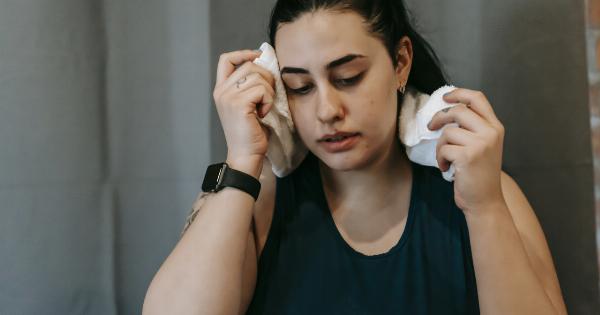Sexual desire is a natural human need, which often fluctuates throughout life in response to various factors.
While some factors that lower your libido, like stress and physical fatigue, are temporary and often treatable, other factors can have a long-term impact on your sexual desire. Interestingly, one of the activities that can ruin your sex drive is something that you might not expect, and that is exercise.
In this article, we will explore the reasons behind the negative impact of heavy workouts on sex drive and suggest some tips that may help you to restore your libido.
Why Does Exercise Decrease Sex Drive?
For many people, a regular exercise routine is a key aspect of maintaining good health and well-being.
Exercise is known to have numerous benefits, including reducing the risk of chronic diseases, such as heart disease, and enhancing cognitive functioning. However, when it comes to sex drive, the relationship between exercise and libido is often a complicated one. Here are some of the reasons why exercise can decrease your sexual desire:.
1. Exercise Can Cause Physical Fatigue
One of the most common reasons why exercise can lower sex drive is physical fatigue.
Intense physical activities, such as weightlifting and long-distance running, can cause muscle fatigue, soreness, and general tiredness, which in turn can result in a decreased level of interest in sex. Furthermore, when you exercise, your body produces endorphins, which are natural painkillers that help you to endure heavy exercise.
These endorphins also decrease your levels of testosterone, a hormone that is crucial for sexual desire in both men and women. As a result, if you overdo it at the gym, you could be sabotaging your sex life without even realizing it.
2. Exercise Can Increase Stress Levels
A moderate amount of stress is normal and can even be beneficial, but chronic stress is a different story. When you exercise too much, your body can become overtaxed, leading to higher levels of stress hormones like cortisol.
This can cause a number of negative effects in the body, including reduced sex drive. Cortisol also interferes with the production of testosterone, making it more difficult to achieve and maintain an erection or feel sexually aroused.
Exercise can also increase mental stress, especially if you are comparing yourself to others or pushing yourself too hard. All of these factors can lead to a decrease in sexual desire.
3. Exercise Can Alter Hormone Levels
In addition to cortisol, exercise can also alter other hormone levels in the body, particularly in women. Women who exercise vigorously tend to have lower levels of estrogen, a hormone that is essential for healthy sexual function.
This can cause vaginal dryness, which can make intercourse uncomfortable and painful. On the other hand, excessive exercise can cause a rise in testosterone levels in women, which can cause acne, male-pattern hair growth, and other undesirable symptoms.
4. Over-exercising Can Negatively Impact Self-Image
When it comes to sexual desire, body image and self-confidence are also important factors. Overexercising can lead to negative self-image, particularly if a person is not seeing the results they desire.
This, in turn, can lead to a lack of sexual confidence, which can directly impact libido.
How to Improve Your Sex Drive While Exercising
While exercise can decrease sexual desire, it is important to note that a well-balanced exercise routine can actually improve sexual function and desire. Here are some tips for optimizing your exercise routine to enhance your sex drive:.
1. Find the Right Balance
Finding the right balance between exercise and rest is crucial for maintaining optimal sexual health. If you overdo it at the gym, take a break from exercise or switch to gentler forms of exercise, such as swimming or yoga.
Make sure to give your muscles enough time to recover and don’t push yourself beyond your limits, especially if you are experiencing pain or discomfort.
2. Avoid Excessive Cardio
Excessive cardio exercises, like marathon running and cycling, can negatively impact your long-term sex drive. This is because long-duration exercise, especially at a high intensity, can decrease testosterone and increase cortisol levels in the body.
Instead, try short bursts of high-intensity cardio, such as interval training.
3. Incorporate Strength Training
Strength training, such as weightlifting or resistance training, can help to increase testosterone levels, which is critical for maintaining healthy sexual function.
Add strength training to your exercise routine at least twice a week to improve your sex drive.
4. Practice Stress Reducing Techniques
To combat the impact of cortisol on your sex drive, incorporate stress-reducing techniques like meditation, deep breathing, or yoga into your life. These can help to calm your mind and body, reducing cortisol production and enhancing sexual desire.
5. Fuel Your Body with Adequate Nutrition
Eating a healthy, balanced diet is essential for maintaining optimal sexual health. Make sure to eat plenty of whole foods, including fruits, vegetables, lean proteins, and healthy fats.
Avoid processed foods, sugar, and alcohol, as these can interfere with healthy hormone production and lead to negative effects on sexual health.
Conclusion
Exercise can be both a blessing and a curse when it comes to sexual desire. On the one hand, it can improve overall health, boost mood, and increase stamina.
On the other hand, excessive exercise can cause physical fatigue, mental stress, hormonal imbalances, and negative self-image, which can all contribute to a decrease in sexual interest. By finding the right balance between exercise and rest, incorporating stress-reducing techniques, and fueling your body with adequate nutrition, you can help to restore your libido and optimize your overall sexual health.





























